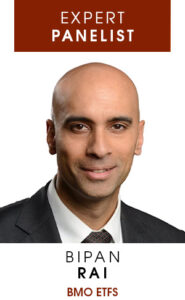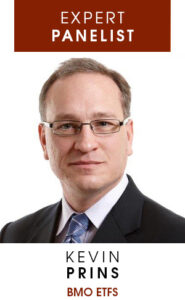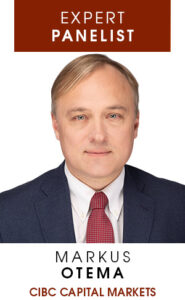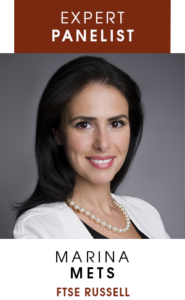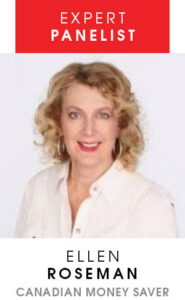Enhanced income strategies are designed for investors looking for higher income to complement their portfolios. They provide:
Enhanced Income
What are Enhanced Income Strategies?
For a full list of solutions and yields see page 2: Enhanced Income ETFs
Enhanced Income FAQ
The covered call option strategy, also known as a buy–write strategy, is designed to provide an investor with a double source of cash flow: an option premium plus the dividend yield. This distribution is tax efficient. The strategy is implemented by writing (selling) a call option contract, while owning the underlying stock. It is considered an income enhancement strategy because it generates additional cash flows compared to only owning the underlying stock. It is also considered a defensive strategy as equity downside returns are reduced by the option premiums as a trade off from excess positive returns. Covered call strategies tend to outperform in flat or down markets, and underperform in periods of rapid market appreciation.
Put options offer downside protection on an underlying stock, much like an insurance contract. When an investor buys a put, they are simply securing a price floor for that asset. An investor who wants to sell the protection would write the put option. They will earn a premium, but must buy the stock if it drops to the pre determined price (the strike price).
The BMO ETFs, generally, will sell out of the money (OTM) call options on 50% of the stocks which cap the return of the written positions at the option strike price until the option expires. For BMO ETFs, option expiries are generally 1 to 2 months. As an example, consider a portfolio that consists of 100 shares of a stock at a current price of $60, for a total value of $6,000. At the money (ATM) call options (strike price of $60) that expire in one month are valued at a premium of $1.50 per contract. To implement a covered call strategy, the Portfolio Manager writes call options on 100 shares and receives $150 in premium.
- Payoff without exercise: Premium received adjusted for any difference in stock price. If the stock price remains at $60, the calls are not exercised, and the portfolio benefits from the premium received. The new portfolio value is $6,150.
- Break even point: Stock purchase price less premium received. If the stock price drops to $58.50, the calls are not exercised, but the portfolio value drops. The new portfolio value is $6,000 ($5,850 + $150). The portfolio will devalue at any price below $58.50.
- Payoff with exercise: Premium received adjusted for any difference between stock price and exercise price. If the stock price rises to $62, the calls are exercised at $60 eliminating the benefit of the rising stock price except for the premium received. The new portfolio value is $6,150.
Preferreds combine the characteristics of both equity and fixed income securities and are chosen by investors to provide their unique balance of security and yield. Preferred shares rank ahead of common stock and behind Fixed Income in terms of claim on assets in terms of liquidation. In addition, they often have a priority over common stock in the payment of dividends.
Resources & Methodology PDFs
1 Source: ETFGI
This communication is for information purposes. The information contained herein is not, and should not be construed as, investment, tax or legal advice to any party. Particular investments and/or trading strategies should be evaluated relative to the individual’s investment objectives and professional advice should be obtained with respect to any circumstance.
The portfolio holdings are subject to change without notice and only represent a small percentage of portfolio holdings. They are not recommendations to buy or sell any particular security.
Commissions, management fees and expenses (if applicable) all may be associated with investments in BMO ETFs and ETF Series of the BMO Mutual Funds. Please read the ETF facts or prospectus of the relevant BMO ETF or ETF Series before investing. BMO ETFs and ETF Series are not guaranteed, their values change frequently and past performance may not be repeated.
For a summary of the risks of an investment in the BMO ETFs or ETF Series of the BMO Mutual Funds, please see the specific risks set out in the prospectus. BMO ETFs and ETF Series trade like stocks, fluctuate in market value and may trade at a discount to their net asset value, which may increase the risk of loss. Distributions are not guaranteed and are subject to change and/or elimination.
BMO ETFs are managed by BMO Asset Management Inc., which is an investment fund manager and a portfolio manager, and a separate legal entity from Bank of Montreal. ETF Series of the BMO Mutual Funds are managed by BMO Investments Inc., which is an investment fund manager and a separate legal entity from Bank of Montreal.
BMO Global Asset Management is a brand name that comprises BMO Asset Management Inc. and BMO Investments Inc.
®/™Registered trade-marks/trade-mark of Bank of Montreal, used under licence.
Copyright © 2022 Prosper Experiential Media. All rights reserved. | Privacy Policy | Terms & Conditions














